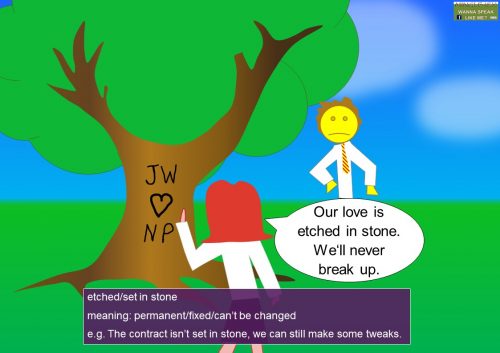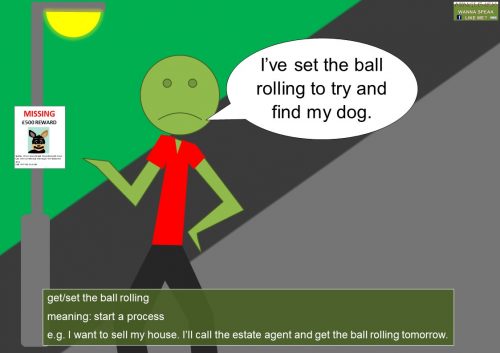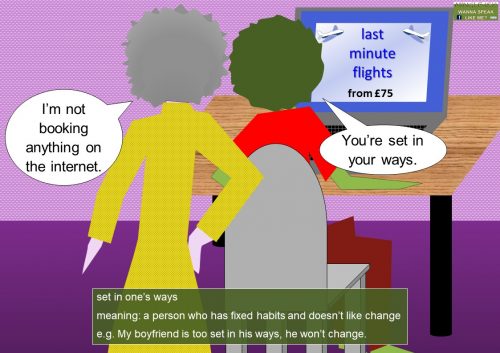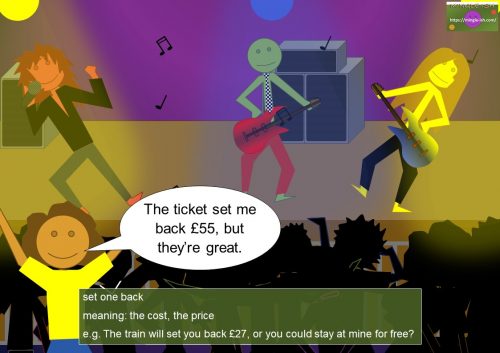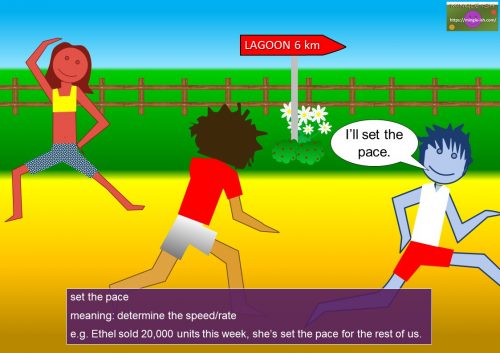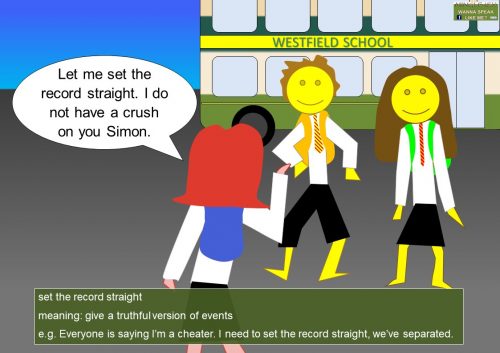The word ‘set’ can mean many different things. As a verb, the meaning is to harden or put something in a specific position.
For example:
- The jelly will take 3 hours to set. (harden)
- Darcy set the table ready for the dinner party. (put in a specific position)
Set is an irregular verb. The past tense is set and the past participle is set.
idiomatic phrasal verbs
Did you know phrasal verbs are sometimes used in idioms? See if you can spot any. If you don’t know any phrasal verbs with ‘set’, click here to learn them.
idioms list with ‘set’
- etched/set in stone – permanent/fixed/can’t be changed
e.g. The contract isn’t set in stone, we can still make some tweaks. - get/set the ball rolling – start a process
e.g. I want to sell my house. I’ll call the estate agent and get the ball rolling tomorrow. - set in one’s ways – a person who has fixed habits and doesn’t like change
e.g. My boyfriend is too set in his ways, he won’t change. - set one back – the cost, the price
e.g. The train will set you back £28, or you could stay at mine for free? - set the pace – determine the speed/rate
e.g. Ethel has sold 20,000 units this week, she’s set the pace for the rest of us. - set the record straight – give a truthful version of events
e.g. Everyone is saying I’m a cheater. I need to set the record straight, we’ve separated.
Let’s see these idioms with pictures and meaning using real-life scenarios.
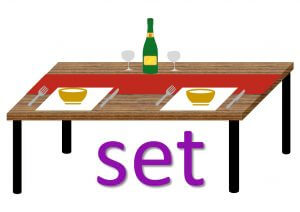
Psst…
Hey, did you know the verb ‘set’ has many phrasal verbs. Since you like idioms and phrases, you obviously want to improve your fluency and speak like a native.
Am I right?
I thought you might like to learn the phrasal verbs with ‘set’ too. They are very common in informal English and great to know/be able to understand if you happen to be speaking to a native. We use them all the time, like literally ALL the time.
